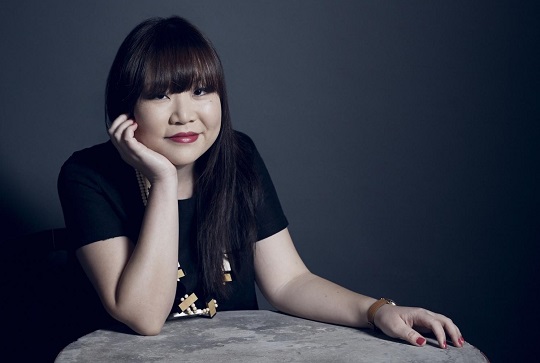South Korean author Hwang Yeo Jung’s scintillating, multi-layered novel, The Specters of Algeria, was our Book Club selection for the month of April; in a narrative that holds fictions inside facts, facts inside fictions, Hwang brilliantly builds and unravels with the double-speak and intimate language of life under authoritarian governance. This invigorating book has come to us by way of the East Asia-centric publisher Honford Star, a small press that has continued to undertake the vital and thrilling work of bringing groundbreaking writers to English-language audiences. In this following interview, Laurel Taylor speaks with the co-founder of Honford Star, Taylor Bradley, about their process from obtaining rights to publication, their mission and goals, and why The Specters of Algeria is such a special title.
The Asymptote Book Club aspires to bring the best in translated fiction every month to readers around the world. You can sign up to receive next month’s selection on our website for as little as USD20 per book; once you’re a member, join our Facebook group for exclusive book club discussions and receive invitations to our members-only Zoom interviews with the author or the translator of each title.
Laurel Taylor (LT): It’s been six years since Honford Star’s founding. What led you and your co-founder Anthony Bird to form this new publishing house?
Taylor Bradley (TB): Anthony and I had known each other since 2008, when we were both English teachers at the same school in Korea. Fast forward to 2015, my wife and I were on our honeymoon in London, where we met up with Anthony and his wife for a pint at this 300-year-old pub called the Chesire Cheese. Charles Dickens was a regular there, and perhaps feeling the inspiration of the Ghost of Literature Past, Anthony and I talked about how nice it would be to have a publishing company. I continued on my honeymoon and didn’t think about the conversation again until a few months later, when Anthony messaged saying he wants to publish the classic Korean author Kim Dong-in and asked me if I want in. I said yes.
Our purpose for starting a new publishing company was to bring a broader range of East Asian stories into English. At the time, we felt the types of books being published were from an extremely narrow band. For example, there hadn’t been much, if any, Korean sci-fi translated into English. We hoped to bring things from areas like classic literature, sci-fi, and queer fiction into English. Fortunately, I think that the translated field has changed a lot in the past eight years, thanks to the efforts of indie and university presses.
LT: You and Anthony were both already working in the publishing sphere prior to Honford Star’s founding, but I’m wondering if there been any unexpected challenges along the way? Unexpected rewards?
TB: We did have experience with printing and publishing, but we had never been in charge of doing an entire book. So finding good translators, editors, artists, printers, distributor, publicists, and sales team has been a journey of trial and error. We’ve been fortunate that our network has really grown into strong group of collaborators, and we have a great printer in Korea that can make the most gorgeous books. Our sales team are a group of wizards, and the distributor is very reliable. READ MORE…


